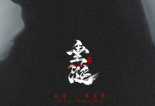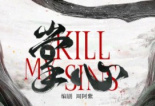Episode 46
In the long history of the Ming Dynasty, the forty-fifth year of Jiajing (1566) was destined to be a magnificent year.On December 14 of this year, Zhu Houcong, the eleventh emperor of the Ming Dynasty, also known as Emperor Jiajing, ended his legendary life.Just after this day, the political stage of the Ming Dynasty ushered in a new protagonist-Yu Wang Zhu Zaihe succeeded to the throne, with the reign name Longqing.
《History of Ming Dynasty·Biography of Hai Rui》It is recorded that when Hai Rui heard the news of the death of Emperor Jiajing, he was so grief-stricken that he vomited and fainted to the ground.This feeling of monarch and minister is enough to bear witness to the important position and deep friendship between the two in the history of the Ming Dynasty.

Before his death, Emperor Jiajing confided his way of governing the country to the people around him.He used the Yellow River and the Yangtze River as metaphors to express the wisdom of using people to govern a country.Although the water of the Yellow River is turbid, it can still nourish the fields on both sides; although the water of the Yangtze River is clear, it still needs to be used for irrigation.Emperor Jiajing believed that the same was true for governing the country and employing people, who should not be biased based on personal preferences or moral standards.He deposed Yan Song and killed Yan Shifan and others precisely because they abused their power and harmed the country. They were like the Yellow River overflowing and must be controlled.
In the eyes of Emperor Jiajing, Hai Rui was a sharp sword that only a virtuous person could wield.He had high hopes that Hai Rui could deal with those corrupt officials and implement a new system.In Emperor Jiajing's heart, Hai Rui was a fearless and outspoken minister. His loyalty and integrity were rare treasures in the Ming Dynasty's bureaucracy.
The day after the death of Emperor Jiajing, King Yu Zhu Zaihe succeeded to the throne and began his Longqing era.Following the late emperor's edict, he released and reinstated imprisoned officials, and, represented by Hai Rui, pardoned all officials who had remonstrated.This move not only reflected the tolerance and open-mindedness of the new monarch, but also laid the foundation for the subsequent Longqing Reform.
From this moment on, the eighteen-year Longqing Reform began.









